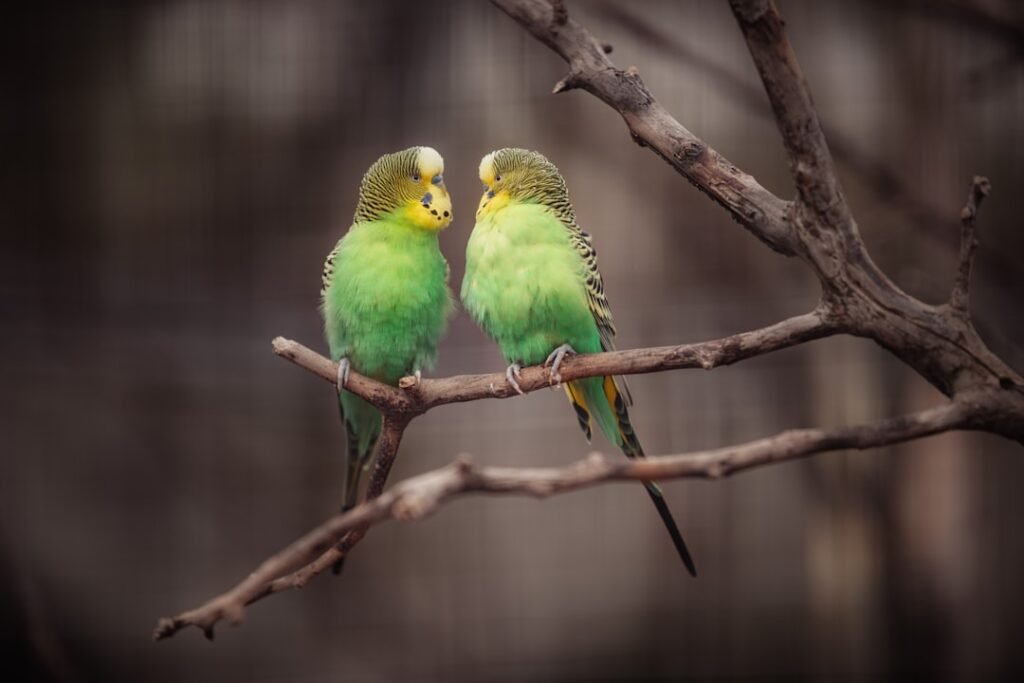Having a proper cage for your parakeet is essential for their health and well-being. It provides them with a safe and secure environment where they can thrive. However, choosing the right cage can be a perplexing task, as there are many factors to consider. In this article, we will explore the importance of a proper parakeet cage and discuss various aspects that need to be taken into account when selecting one.
Key Takeaways
- A proper parakeet cage is crucial for the health and well-being of your bird.
- Choosing the right size cage is important to ensure your parakeet has enough space to move around and exercise.
- Proper ventilation is necessary to prevent respiratory issues and maintain a healthy environment for your parakeet.
- Selecting the right location for your parakeet’s cage can impact their comfort and safety.
- Proper lighting is essential for your parakeet’s health and well-being, including regulating their sleep patterns and vitamin D production.
Understanding the Importance of a Proper Parakeet Cage
A proper cage is crucial for a parakeet’s health and well-being. It provides them with a space where they can feel safe and secure, allowing them to exhibit natural behaviors and engage in physical activities. A cage that is too small can lead to stress and boredom, which can have negative effects on their mental and physical health.
An improper cage can also pose potential dangers to your parakeet. For example, cages with large gaps between the bars can allow them to escape or get stuck. Additionally, cages made of toxic materials or with sharp edges can be harmful to their delicate bodies. It is important to choose a cage that is specifically designed for parakeets and meets all safety standards.
Choosing the Right Size Cage for Your Parakeet
When selecting a cage for your parakeet, size matters. It is important to choose a cage that provides enough space for your parakeet to move around and exercise. A general rule of thumb is to select a cage that is at least 18 inches wide, 18 inches deep, and 18 inches tall. However, if you have multiple parakeets or want to provide them with more space, it is recommended to opt for a larger cage.
Parakeets are active birds that require ample room to fly and stretch their wings. A small cage can restrict their movement and lead to muscle atrophy and other health issues. It is also important to consider the placement of perches, toys, and food and water containers within the cage, as they can take up additional space. Providing enough space for your parakeet to move around and exercise is essential for their overall well-being.
The Importance of Proper Ventilation in a Parakeet Cage
| Metrics | Description |
|---|---|
| Temperature | Proper ventilation helps regulate the temperature in the cage, preventing it from becoming too hot or too cold. |
| Humidity | Good ventilation helps maintain the right level of humidity in the cage, preventing respiratory problems and mold growth. |
| Odor control | Proper ventilation helps remove unpleasant odors from the cage, keeping the air fresh and clean. |
| Air quality | Good ventilation ensures that the air in the cage is free from harmful pollutants and allergens, promoting the bird’s health. |
| Prevention of illness | Proper ventilation helps prevent the spread of airborne diseases and infections among birds in the cage. |
Proper ventilation is crucial for a parakeet’s respiratory health. Parakeets have sensitive respiratory systems and are prone to respiratory infections. A cage with poor ventilation can lead to the accumulation of dust, dander, and other airborne particles, which can irritate their respiratory system and cause respiratory issues.
To ensure proper ventilation in your parakeet’s cage, it is important to choose a cage with adequate airflow. Look for cages with mesh or wire sides that allow air to circulate freely. Avoid cages with solid walls or those made of materials that restrict airflow. Additionally, it is important to clean the cage regularly to remove any buildup of dust or debris that can hinder proper ventilation.
Selecting the Right Location for Your Parakeet’s Cage
Choosing the right location for your parakeet’s cage is essential for their well-being. It is important to place the cage in an area that is away from drafty areas and direct sunlight. Drafts can cause temperature fluctuations, which can be stressful for your parakeet. Direct sunlight can also be harmful, as it can cause overheating and dehydration.
Ideally, the cage should be placed in a quiet area of your home where your parakeet can feel safe and secure. Avoid placing the cage in high traffic areas or near loud appliances, as this can cause stress and anxiety for your parakeet. It is also important to provide them with a sense of privacy by placing the cage against a wall or in a corner.
The Importance of Proper Lighting for Your Parakeet’s Health

Proper lighting is important for a parakeet’s health. Parakeets require exposure to natural light to maintain their circadian rhythm and overall well-being. Natural light provides them with essential vitamins, such as vitamin D, which is necessary for the absorption of calcium.
When selecting a location for your parakeet’s cage, it is important to consider the availability of natural light. Place the cage in an area where it can receive indirect sunlight during the day. If natural light is limited, you can also provide artificial lighting by using full-spectrum bulbs that mimic natural sunlight. It is important to provide a consistent light-dark cycle for your parakeet to ensure their overall health and well-being.
Choosing the Right Type of Perches for Your Parakeet
Choosing the right type of perches for your parakeet is essential for their foot health. Parakeets spend a significant amount of time on their perches, so it is important to provide them with a variety of perches that offer different textures and diameters.
Natural wood perches are a popular choice, as they provide a comfortable and secure grip for your parakeet. Avoid using perches with sandpaper covers, as they can cause abrasions and foot problems. It is also important to provide perches of different diameters to exercise their feet and prevent muscle atrophy.
The Importance of Providing Your Parakeet with Toys and Enrichment
Providing toys and enrichment activities is important for a parakeet’s mental and physical health. Parakeets are intelligent birds that require mental stimulation to prevent boredom and behavioral issues. Toys provide them with an outlet for their natural behaviors, such as chewing, climbing, and foraging.
When selecting toys for your parakeet, choose ones that are safe and appropriate for their size. Avoid toys with small parts that can be swallowed or those made of toxic materials. Provide a variety of toys that offer different textures, colors, and shapes to keep your parakeet engaged and entertained. It is also important to rotate the toys regularly to prevent boredom.
Choosing the Right Type of Food and Water Containers for Your Parakeet
Choosing the right type of food and water containers is important for your parakeet’s health. It is important to choose containers that are easy to clean and maintain. Avoid using containers made of plastic, as they can harbor bacteria and be easily chewed through.
Stainless steel or ceramic bowls are a good choice, as they are durable and easy to clean. It is important to provide separate containers for food and water to prevent contamination. Additionally, it is important to clean the containers regularly and provide fresh food and water daily to ensure your parakeet’s health and well-being.
Proper Cleaning and Maintenance of Your Parakeet’s Cage
Proper cleaning and maintenance of your parakeet’s cage is essential for their health. Regular cleaning helps prevent the buildup of bacteria, mold, and other harmful substances that can affect your parakeet’s respiratory system and overall well-being.
It is recommended to clean the cage at least once a week. Remove all toys, perches, and accessories from the cage and wash them with mild soap and water. Thoroughly clean the cage with a bird-safe disinfectant, making sure to remove any droppings or debris. Rinse the cage thoroughly with water and allow it to dry completely before placing the accessories back in.
Understanding the Importance of Parakeet Safety and Security in Their Cage
Parakeet safety and security is paramount in their cage. It is important to ensure that the cage is escape-proof and free from any potential hazards. Check the cage regularly for any loose or damaged parts that can pose a danger to your parakeet.
Avoid placing the cage near windows or doors that can be opened easily, as this can increase the risk of escape. It is also important to keep the cage away from other pets or children that may pose a threat to your parakeet’s safety. Providing a secure and safe environment is essential for your parakeet’s well-being.
In conclusion, providing a proper cage for your parakeet is essential for their health and well-being. It is important to choose a cage that provides enough space for them to move around and exercise. Proper ventilation, lighting, perches, toys, food and water containers, and cleaning and maintenance are all important factors to consider when selecting a cage for your parakeet. By providing the best possible living environment, you can ensure that your parakeet thrives and lives a happy and healthy life.


